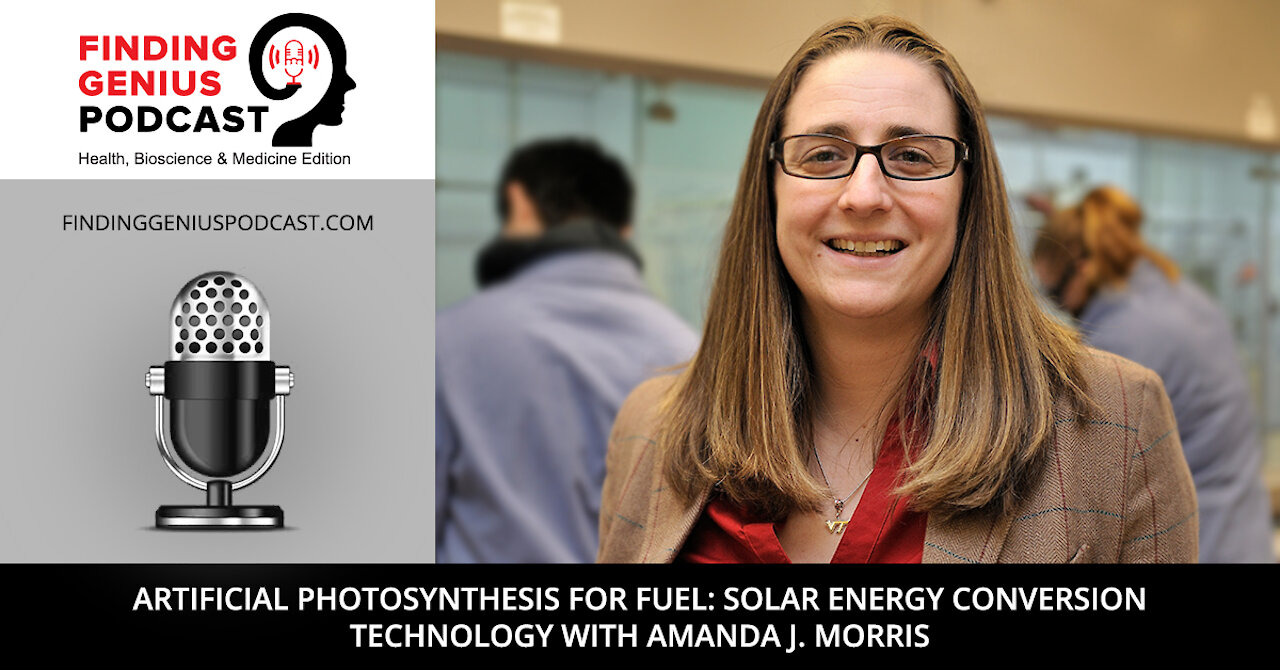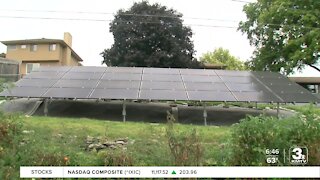Premium Only Content

Artificial Photosynthesis for Fuel: Solar Energy Conversion Technology with Amanda J. Morris
What if we could produce an energy-dense carbon-neutral fuel that suits uses of fossil fuels? Researchers like Amanda Morris are working with different types of solar energy conversion to produce such a fuel, and the potential is promising, exiting, and challenging.
Listen in to this conversation about solar energy and its applications and learn
How her lab is trying to imitate the chemical process a plant uses in photosynthesis to tap in to renewable energy sources for vehicle fuel,
How she works with "material scaffolds" to solve some of the challenges, and
What the timeline looks like for this technology and what breakthroughs are needed.
Amanda J. Morris is a professor and associate chair of the Department of Chemistry at Virginia Tech. She's spent her career addressing environmental issues like climate change through scientific solutions. Currently her lab is trying to imitate the photosynthesis process to produce a fuel that could replace fossil fuels. As plants convert sun energy and carbon dioxide to make sugar, solar energy conversion technology hopes to turn the same products into something we can use to fill up our cars.
She gets more specific, explaining how this differs from solar panel energy conversion. Rather than send those electrons and positively charged holes into circuits, she wants to put them on carbon dioxide and water molecules, producing methane after reduction and oxidation.
But there are a couple of interesting puzzles along the way that can be summarized by two main goals: first, they need to refine the process of harnessing the sun energy closer to that of plants. Plants are green because of the chlorophyll that's responsible for capturing solar energy. She and her colleagues are trying to imitate and manipulate that chlorophyll process, reenacting the chemical environment in a way to produce this fuel. Second, water oxidation possess a tremendous challenge.
Getting electrons from water is incredibly difficult to do without producing highly reactive oxidizing species. They are trying to make something stable, but with the right geometry to drive the chemistry energy. The potential that comes from solving these challenges are exciting, offering numerous solutions for environmental problems and climate-friendly technologies.
For more about her work, see ajmorrisgroup.chem.vt.edu.
Available on Apple Podcasts: apple.co/2Os0myK
-
 2:59
2:59
KNXV
4 years agoThe future of solar energy in Arizona
57 -
 48:15
48:15
The Rob Maness Show
4 years agoEp 85 | Technology advances enable Artificial Intelligence Machine Learning
6092 -
 0:21
0:21
WFTX
3 years agoDogs with energy best for lowering stress
32 -
 0:36
0:36
kss2612
3 years agoBurning off excess energy with karate
421 -
 2:24
2:24
KMTV
4 years agoSolar energy is better for the environment and your pockets
2262 -
 0:52
0:52
KiwiLimon_SeasonalRecipes_English
4 years agoEnergy Smoothie with Coconut
21 -
 4:57
4:57
joshscandlen
3 years agoPortable Solar Panel With Battery
1173 -
 4:02
4:02
WXYZ
4 years agoExperimenting with Energy!
35 -
 26:14
26:14
Master Diesel Mechanic
3 years agoMercedes 300 TD Veggie Oil Conversion with Heater Block
51 -
 LIVE
LIVE
vivafrei
1 hour agoSoros Karma in New York! Tammy Duckwarth Spreads LIES About Tulsi Gabbard! Pennsylvania FLIPS & MORE
2,224 watching